You Had A Better Childhood Than Most If These 11 Things Sound Familiar
Our childhood memories shape the quality of our present lives.
 GaudiLab / Shutterstock
GaudiLab / Shutterstock It was our childhoods that formed us. Now, we either look back on them with gratitude for what was or with regret for what could have been. Most of us have at least some memories we are fond of, but not everyone can claim to have had a fantastic childhood that truly stands out.
Those who had a better childhood than most find that certain things that sound familiar to this day made them feel loved and secure back when they were kids. Research professor Jennifer E. Lansford, PhD, shared just how vital this can be. “Children who feel loved and accepted by their parents have better relationships not only with their family but also with peers,” she said. “In contrast, children who feel rejected by their parents have worse social, emotional and behavioral adjustment, even into adulthood.” If these 11 things sound familiar, congratulations! You had a better childhood than most people.
1. There was always someone there to support you at big events
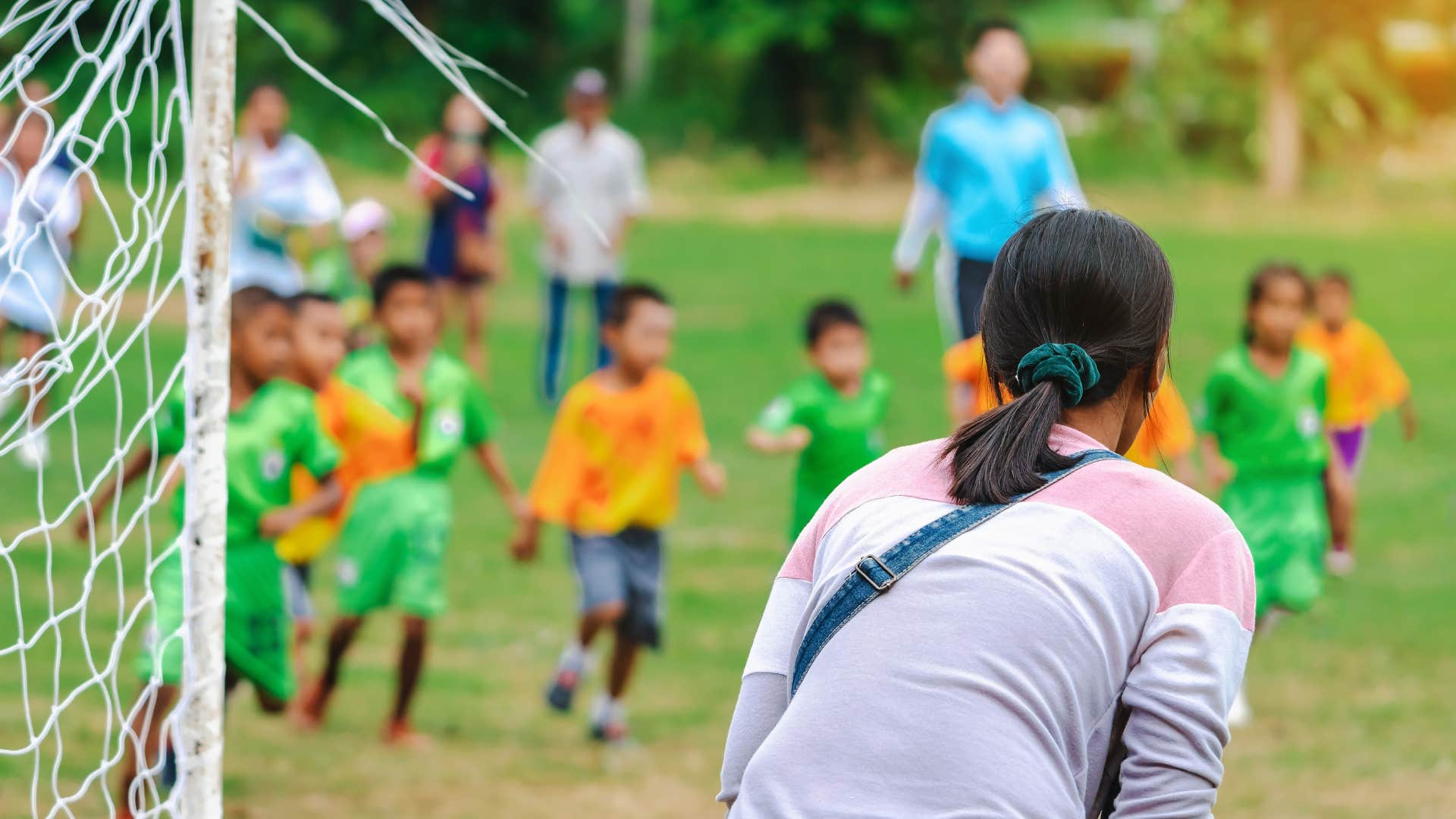 Nach-Noth | Shutterstock
Nach-Noth | Shutterstock
We’ve all seen a kid who was playing in a sports game, being recognized at an awards ceremony, or acting in a school play with no one on hand to support them. Some of us have even been that kid. It’s understandable that parents and other adult caregivers have to work and handle their responsibilities, but never showing up and being there for your child when it matters most can really hurt them.
For many kids, sports are a big deal, and not having support from the people who matter the most can be detrimental. The National Academy of Athletics noted that offering “visible support” and “attending practices and games” is one of the best ways that parents can show up for their kids. “Parents’ supportive behaviors are associated with greater sports enjoyment, continued participation, and higher self-esteem in children,” they added.
The same applies to any important event a kid might have. They need to know that they are supported and cared for. If you grew up with at least one special person always in attendance when you had something big going on, you truly had a better childhood than most. You knew that the people you cared about the most cared about you in return, and you never felt like you had to face something big on your own.
2. People who matter told you that they loved you and were proud of you
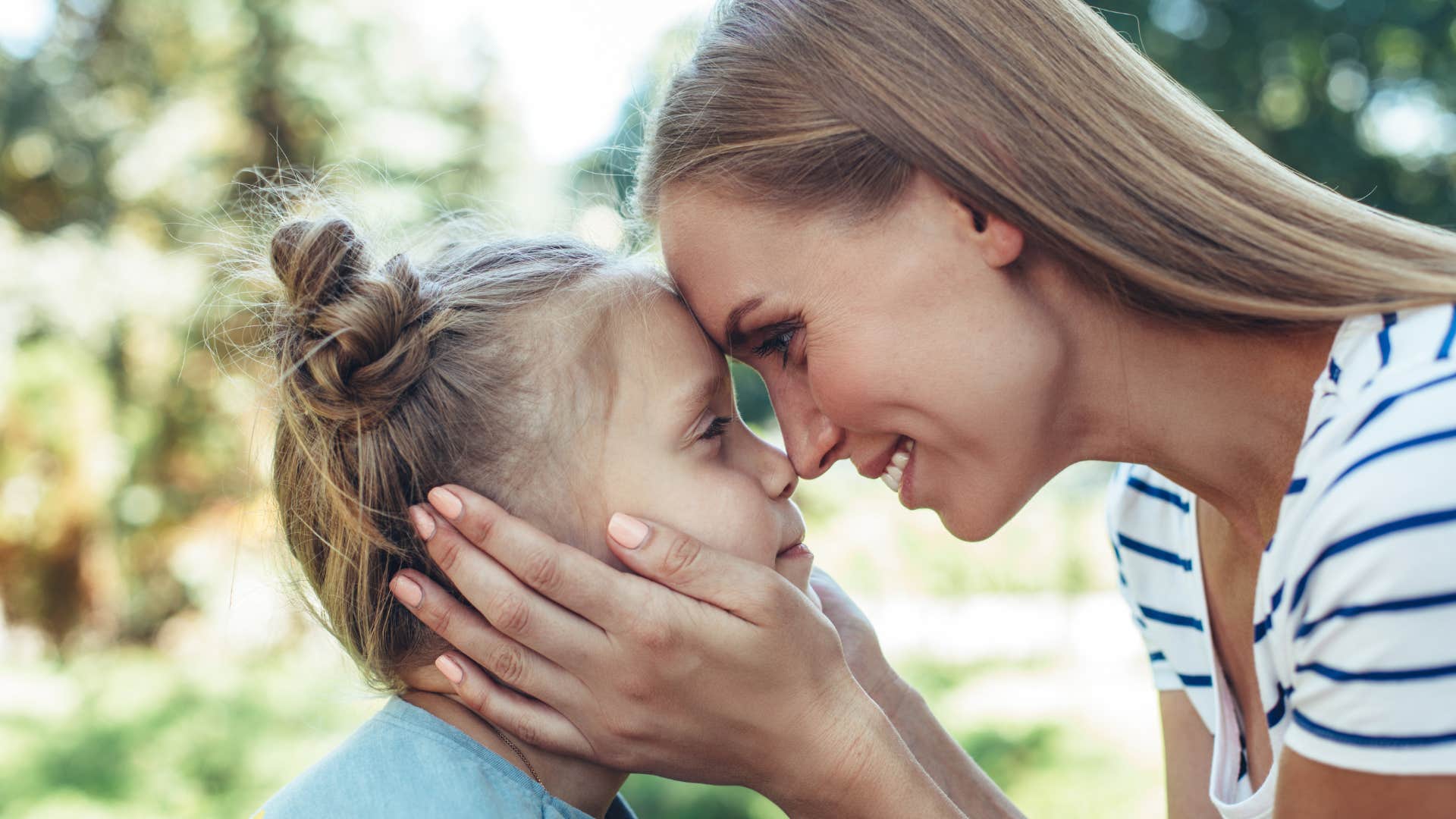 Olena Yakobchuk | Shutterstock
Olena Yakobchuk | Shutterstock
Another sign that you had a better childhood than most is that you frequently heard phrases like “I love you” and “I’m proud of you.” Whether it came from parents, grandparents, teachers, or other caregivers, knowing that you’re loved and that a trusted adult is proud of you is so important. There’s nothing quite like hearing someone whose opinion matters to you say that they’re proud of you.
Pediatric sensory specialist Stephanie Welch said, “Research shows that children who feel a strong sense of acceptance and love at home are more likely to develop positive self-esteem.” However, she acknowledged that this isn’t easy for everyone, especially if they didn’t grow up in a home where they were frequently told they were loved. But she said that parents who make these kinds of words a part of their children’s everyday life are doing something right.
If you frequently had the adults that you loved tell you that they loved you too, or that they were proud of you, or something similar, you had a better childhood than most. Because you were truly loved and accepted, you were able to feel safe and secure. The adults in your life made you feel important, and that’s a very special thing.
3. Having lots of good friends
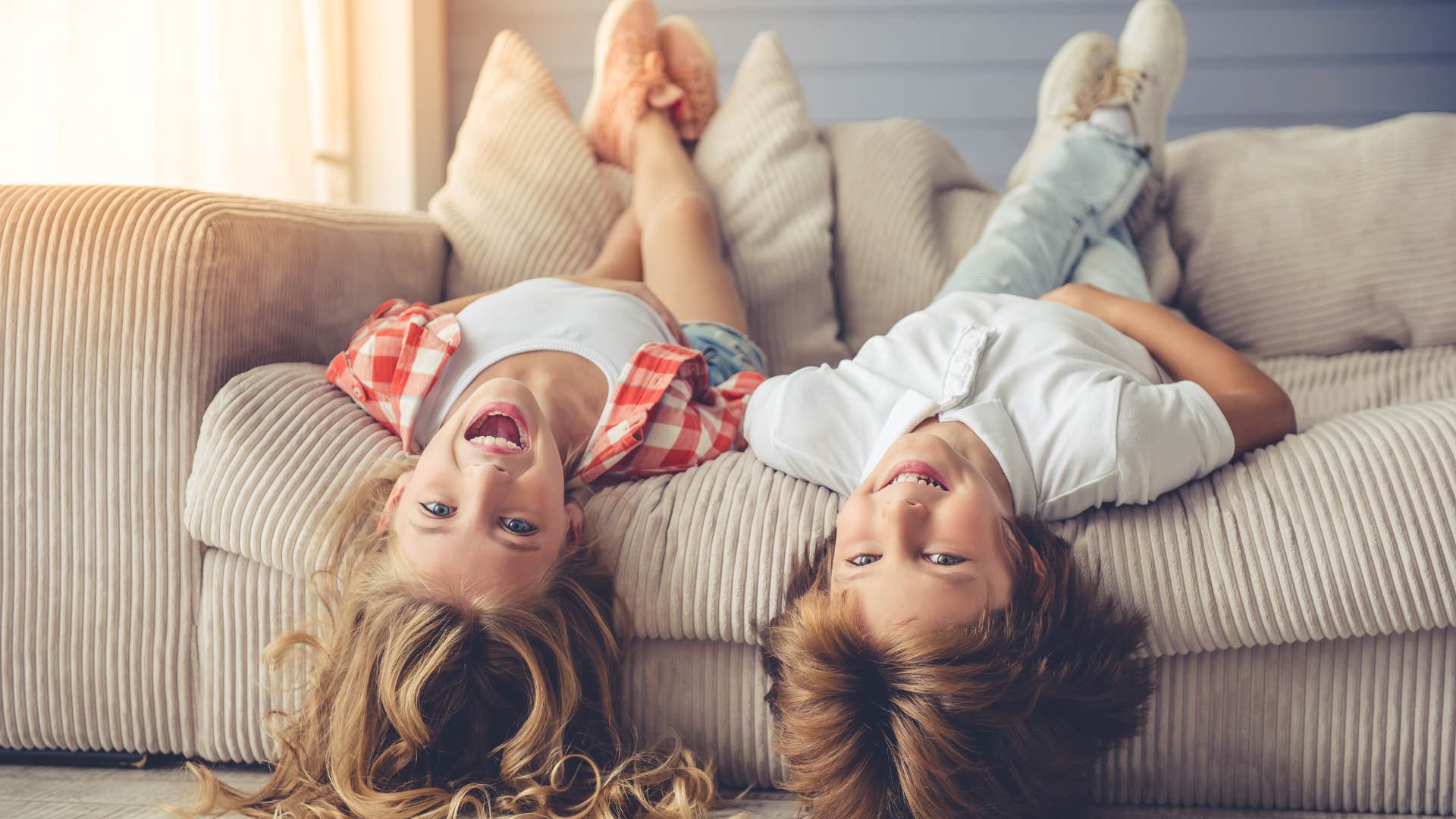 VGstockstudio | Shutterstock
VGstockstudio | Shutterstock
Not everyone is blessed with good friends, so if you had some solid friends growing up, you can be sure that you had a better childhood than most. Some kids feel like they just don’t fit in with any group of friends and just kind of cycle around to wherever they’re accepted at the moment. Others have many friends, but none who are particularly close. Having a small group of really good friends you can depend on and spend time with can be a game-changer.
Developmental psychologist Dona Matthews, PhD, underscored the importance of kids growing up with friends they can count on. “A child or adolescent who has a strong network of social support — including friends as well as family, extended family, neighbors and others — is more resilient, happier and more successful than others,” she noted. She said each kid will have different “social needs” in terms of the number of friends they feel like they need, but having at least a handful is essential.
Some kids never quite click with others and don’t really have the opportunity to have good friends. Others deal with other extenuating circumstances, like moving around a lot, that make it hard to get close to anyone. If you did have good friends growing up that you could play with and talk to, you can rest assured that you did have a better childhood than many others did.
4. Not spending all day in front of a screen
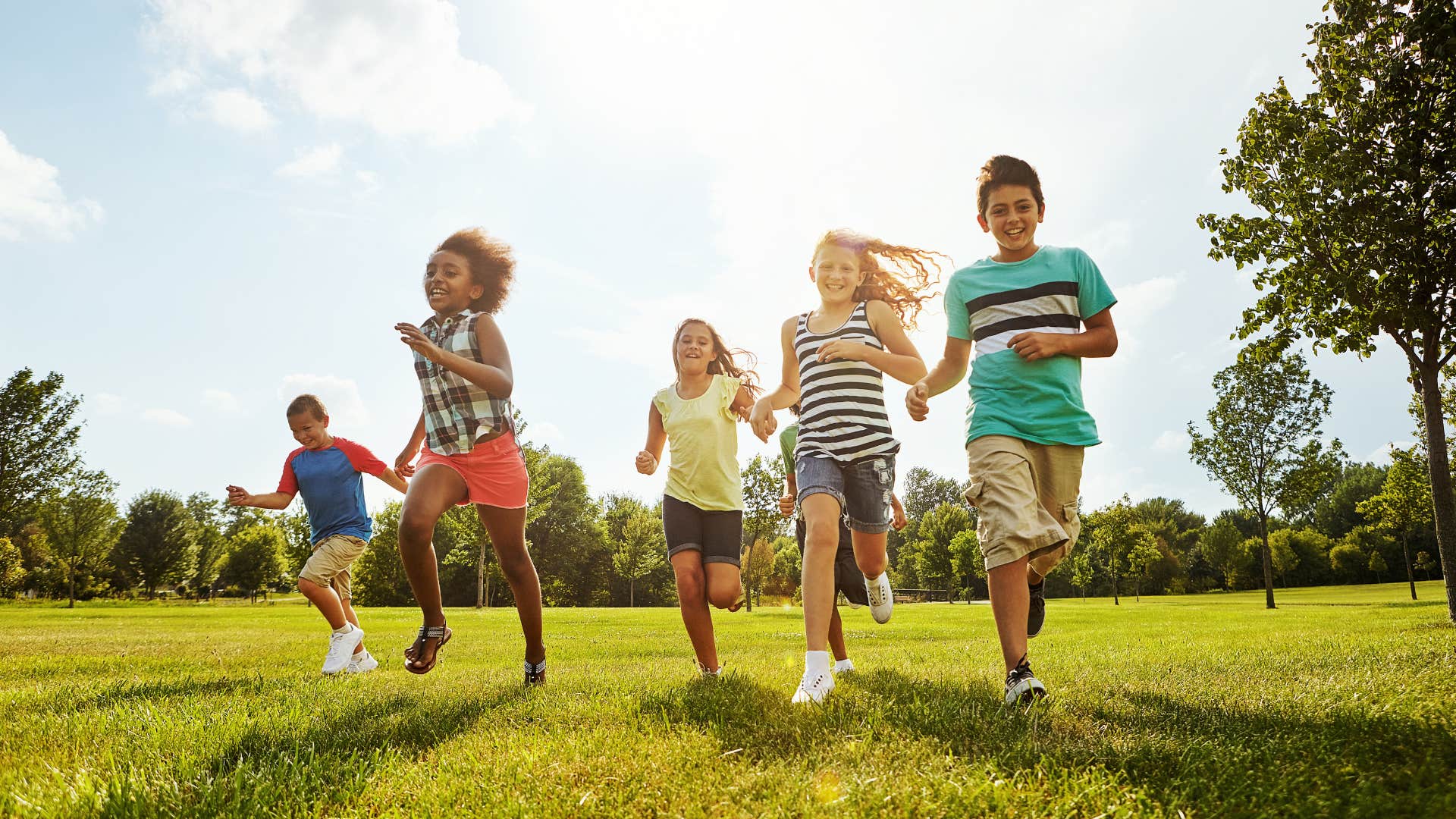 PeopleImages.com - Yuri A | Shutterstock
PeopleImages.com - Yuri A | Shutterstock
Screen time doesn’t necessarily mean you had a bad childhood, and all kids have had some level of screen time for the past few generations, even if it was just Saturday morning cartoons. However, a lot of people would agree that getting outside and playing, really using your imagination and making up little games and scenarios for yourself and your friends, is better for kids than constantly looking at a screen. What’s worse is that many parents today use screens to soothe their children when they’re upset instead of trying to deal with the issue at hand.
Dr. Michelle Yang, a resident at Children’s Hospital of Orange County (CHOC), studied the effect of screen time on kids. She said that screen time should be monitored by adults, especially when young children are involved. “The studies overall have shown that there is definite improvement of learning when there’s a physical presence of adults in the room,” she said. “And that, of course, is very much what we would expect.”
CHOC also noted that the guidelines given by the CDC and the American Academy of Pediatrics suggest no more than two hours of screen time accompanied by adult supervision for children who are five years old up to preteen age. That’s roughly the length of one movie, or, for younger kids, a few YouTube videos. Screen time can be used strategically and even serve as a learning tool, but constant use means kids are missing out. You can say you had a better childhood than most if you didn’t have a lot of screen time.
5. Being given a lot of sweet treats
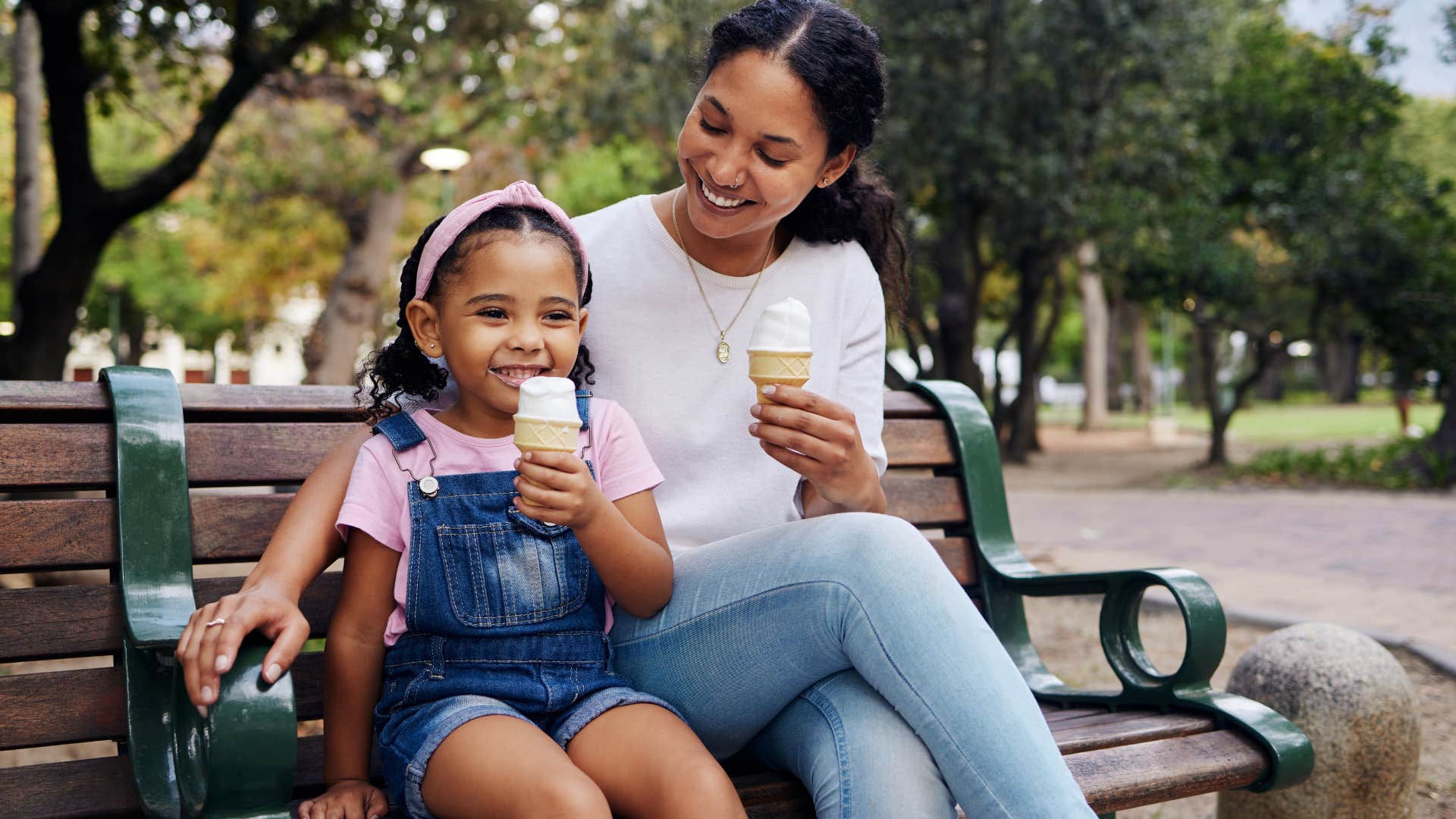 PeopleImages.com - Yuri A | Shutterstock
PeopleImages.com - Yuri A | Shutterstock
While it may not be the healthiest option, being given sweets as a child can create some special memories. Who doesn’t love to reminisce on the days when they would hear the ice cream truck outside and beg their parents for a few dollars to go buy something? And who could forget the special cakes and other treats they shared with their friends at their birthday parties? We live in a culture where food is very much a part of socialization and big moments, and a big part of that is dessert.
Kids are known for having a strong affinity for candy and other sweets, and it turns out that there might be an actual reason for that. Julie Mennella, a researcher at Philadelphia’s Monell Chemical Senses Center, discovered that kids’ sweet tooth is actually biological. “During periods of growth, they’re attracted to foods that give us calories,” she stated. “In the past, it was fruits: dates, honey. Now children are living in environments where sugar’s everywhere.”
Of course, constantly eating sugar isn’t good for you, so it’s best if your parents gave you those sweet treats in moderation. However, childhood is one time when there are fewer consequences for eating a little extra sugar, and kids will remember it fondly, just like those who had a better childhood than most do.
6. Voices were never or rarely raised in your house
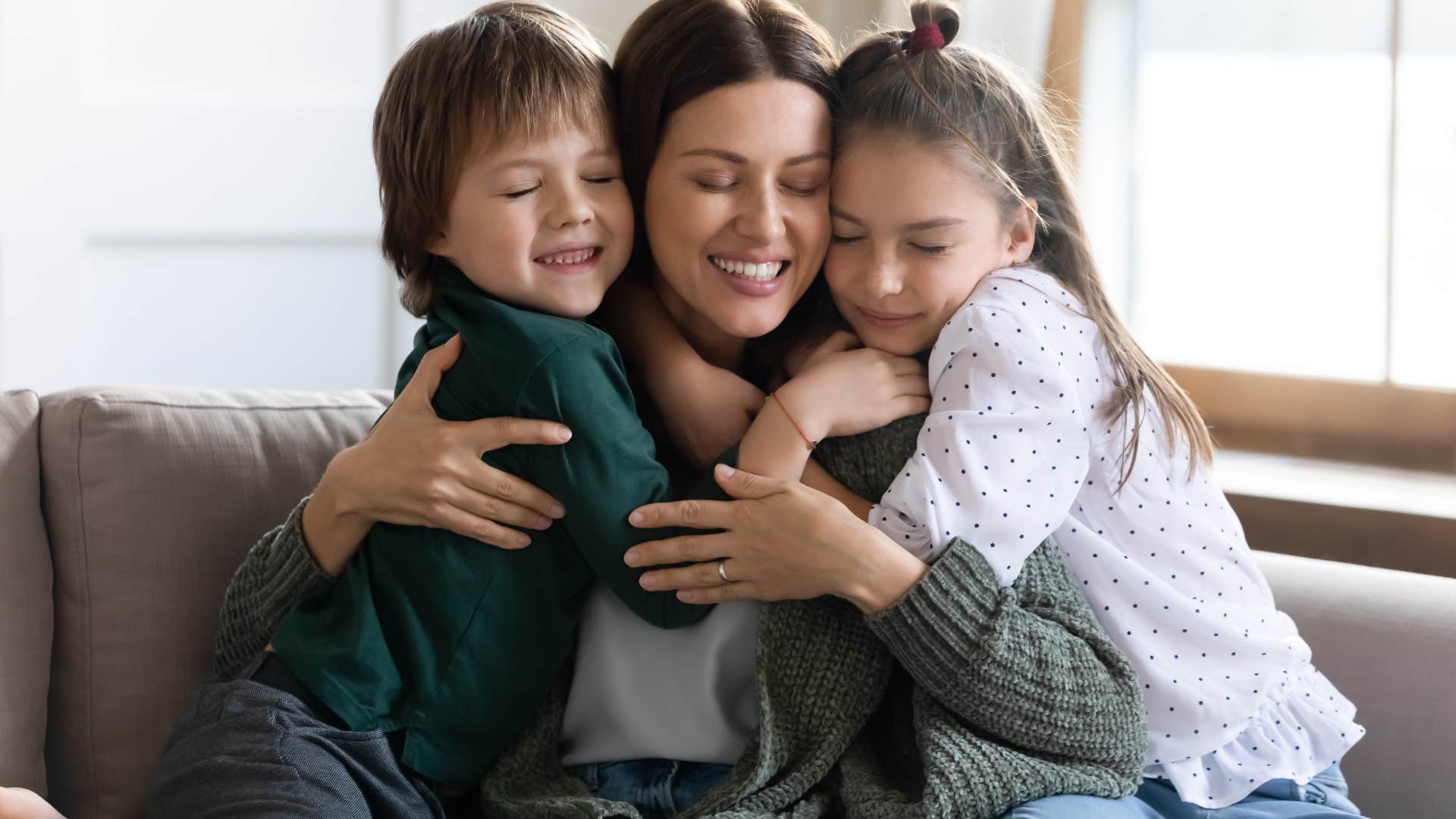 fizkes | Shutterstock
fizkes | Shutterstock
Some kids have bad memories from their childhood of their parents constantly raising their voices — at them, at each other, and just in general. This can cause trauma for kids who are just doing their best to navigate growing up. If they’re raised in that kind of environment, they could also come to think that raised voices are normal and seek out those kinds of relationships later in life. If your parents spoke calmly and didn’t raise their voices, you had a better childhood than most.
Healthline writer Rena Goldman noted that several negative effects can come from parents yelling at their children. While some parents may think that raising their voice causes children’s bad behavior to stop, it can actually make it worse. It can even affect physical health and lead to depression and chronic pain. Perhaps most concerningly, yelling can even stunt a child’s brain development.
No parent is perfect, and everyone is going to mess up sometimes. However, consistently raising your voice around your child has a profound impact on them. If you were used to hearing kind, loving voices when you were growing up, then you had a better childhood than many others did.
7. Playing outside until it got dark
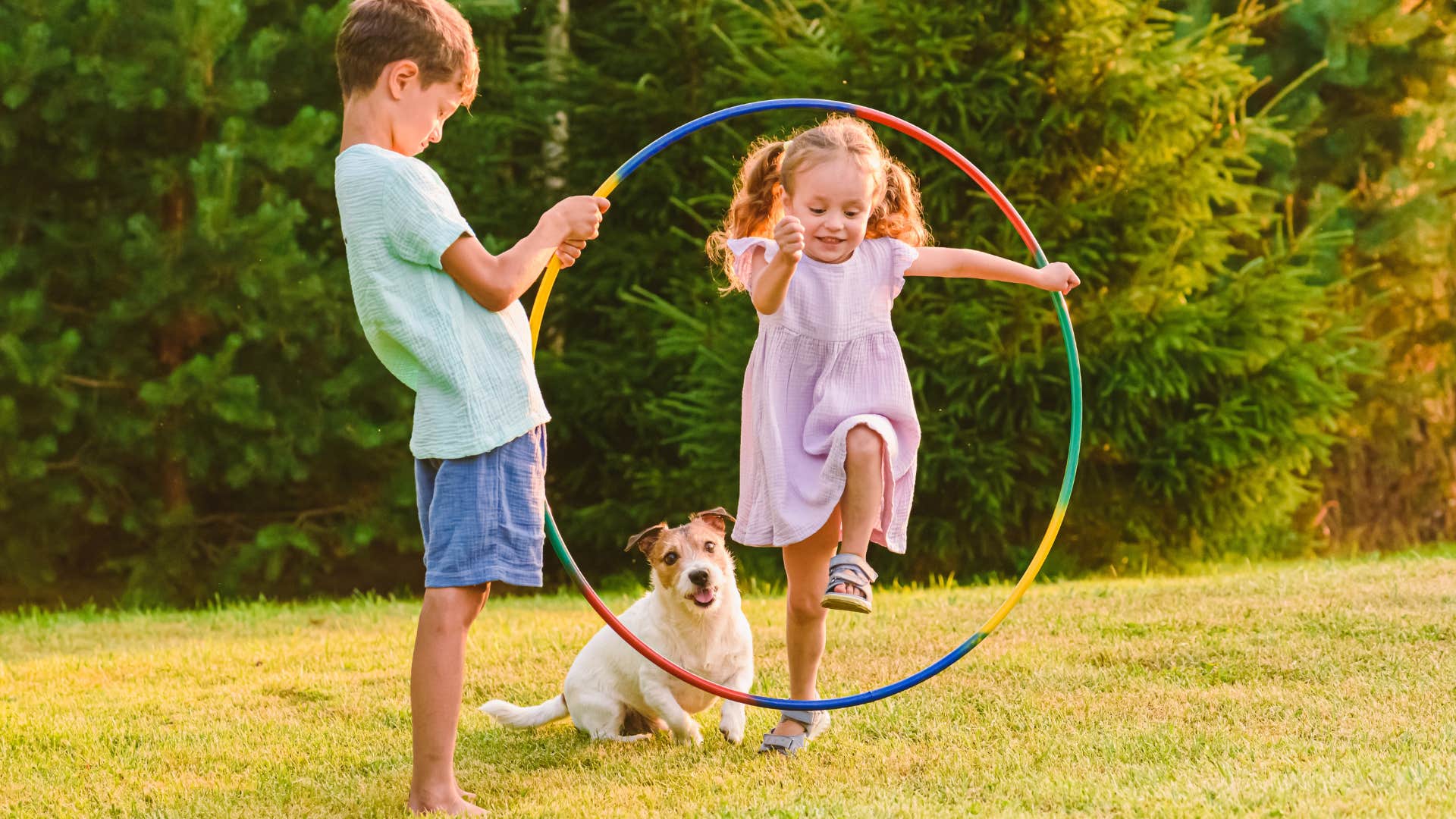 alexei_tm | Shutterstock
alexei_tm | Shutterstock
Today’s kids will never know the joy of running wild and free outside until it gets dark. Previous generations knew there was something so special about being able to go outside and play with no strict restrictions and no worries. You could become friends with the neighborhood kids and spend the whole day using your imagination. That’s a sign that you had a better childhood than most.
An article published in the journal Pediatrics noted, “Play is essential to development because it contributes to the cognitive, physical, social, and emotional well-being of children and youth.” However, researchers also pointed out that there are fewer options for kids to play freely nowadays. They added, “Many of these children are being raised in an increasingly hurried and pressured style that may limit the protective benefits they would gain from child-driven play.”
The world does seem scarier than it used to, and parents are right to be cautious about what they allow their children to do on their own. However, it’s possible that society has shifted too far in the opposite direction and now basically prohibits kids from having any freedom. Regardless, if you remember playing outside as a kid and being allowed to do whatever you wanted until it got dark, you had a great childhood.
8. Never going to bed without being tucked in
 fizkes | Shutterstock
fizkes | Shutterstock
When you think back to when you were a really young kid, did someone always tuck you in and tell you goodnight before you fell asleep? If so, you likely had a better childhood than most. Many children don’t have that kind of support. Some even go to sleep feeling scared because of the events of the day or what they could wake up to. This comforting action may seem small, but it goes a long way towards making a kid feel secure and loved.
In licensed clinical social worker Nikole R. Jiggett’s book “Through A Child’s Eyes: A Guide For Parents,” she explained how important it can be to tuck a child into bed. “Tucking a child into bed at night is a way to give a child security and love and to wish them a goodnight,” she wrote. “The literal term ‘tuck in’ would imply you physically secure them for bed, ensuring the sheets are tucked and tight so they … cannot get loose while the child sleeps.”
It may seem like tucking a child into bed is a minor thing and easy to forget when coupled with all of the other responsibilities that come with parenthood, but it truly makes them feel safe. Also, taking a few moments with them before bed shows them just how important they are, particularly in the hierarchy of so many things that must be completed. If being tucked in at night sounds familiar to you, you had a good childhood.
9. Laughing a lot
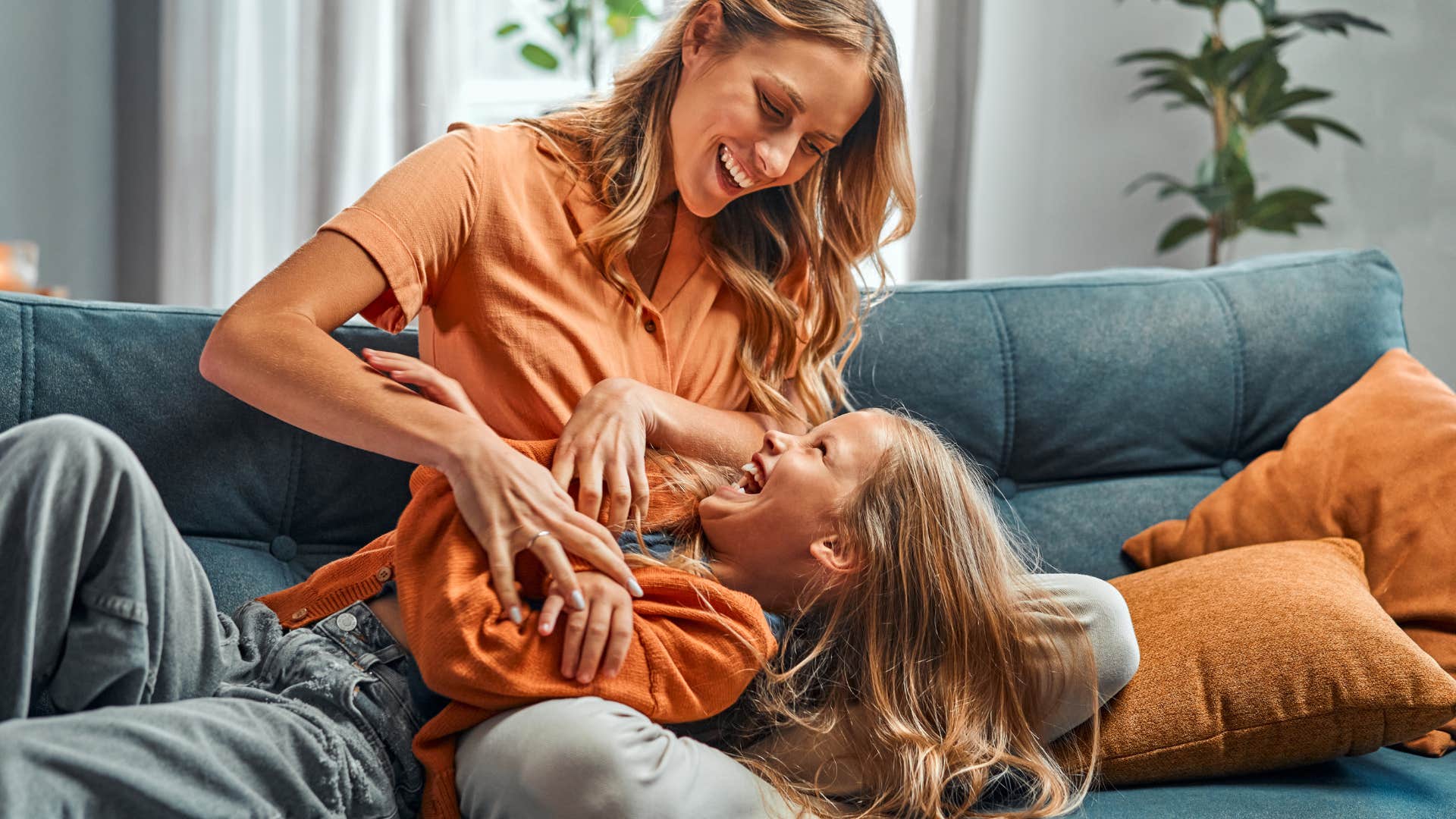 Harbucks | Shutterstock
Harbucks | Shutterstock
The sound of laughter is truly contagious. When someone else is cracking up, you can’t really help but do the same, especially when it’s someone you’re close to. If you laughed a lot as a kid, then you probably had a magical childhood that was better than many others. Laughter implies that you felt safe expressing your feelings in big ways, and that you didn’t feel the need to make yourself seem smaller to fit some sort of mold.
Licensed psychologist Brian Richter, PhD, from St. Louis Children’s Hospital, explained that children are not born with a sense of humor. Instead, it’s really something that has to be taught, just like many other things. “Humor is a great way to connect with others,” he said. “For a toddler, there’s no better way to get attention than with a smile or a laugh. Inside jokes can help older children bond with friends.”
Laughter gives children the chance to make connections and interact with the people around them, no matter what age and stage they’re at. It’s also a sign that you feel safe in your environment because you are comfortable laughing in the first place. And if your parents are the ones making you laugh, it shows that they have a good sense of humor and want to make you smile. Laughing a lot is a sure sign of a good childhood.
10. Being used to warm hugs
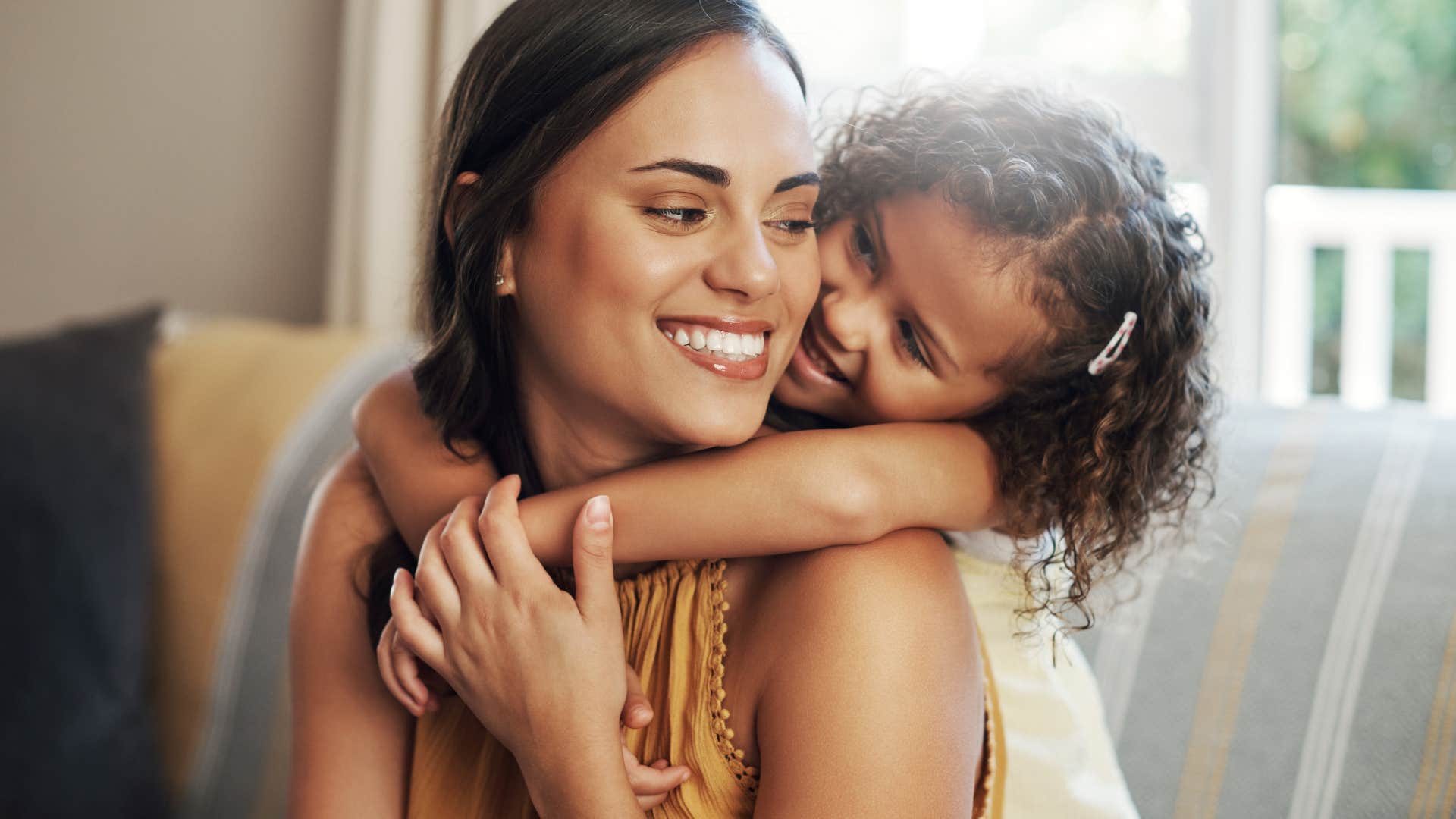 PeopleImages.com - Yuri A | Shutterstock
PeopleImages.com - Yuri A | Shutterstock
Many children do not grow up with the benefit of physical affection. Some adults are not comfortable expressing it because they didn’t grow up with it themselves. In other cases, hugs and kisses were just not part of a parent’s style. If you did receive this kind of affection and got used to warm hugs as a kid, you had a better childhood than many others did.
This is one of the reasons that skin-to-skin contact is so important for babies. Stanford Medicine’s Julie Greicius said, “For babies, the nine months of pregnancy may feel like one long, loving embrace. It’s not surprising, then, that studies support the benefits of skin-to-skin contact for mothers and babies from the moment of birth, through infancy and beyond.” Babies need to experience that physical affection to grow and develop properly.
This is never really not true for children. They will always appreciate a warm hug or cuddle (unless, of course, they’re a dramatic teenager who has relegated any such contact to brief side hugs). If you remember being hugged a lot during your childhood, you probably had a better childhood than most. Not everyone can claim to have had such loving parents who did everything they could to make their children feel that care and affection.
11. You thought your parents were superheroes
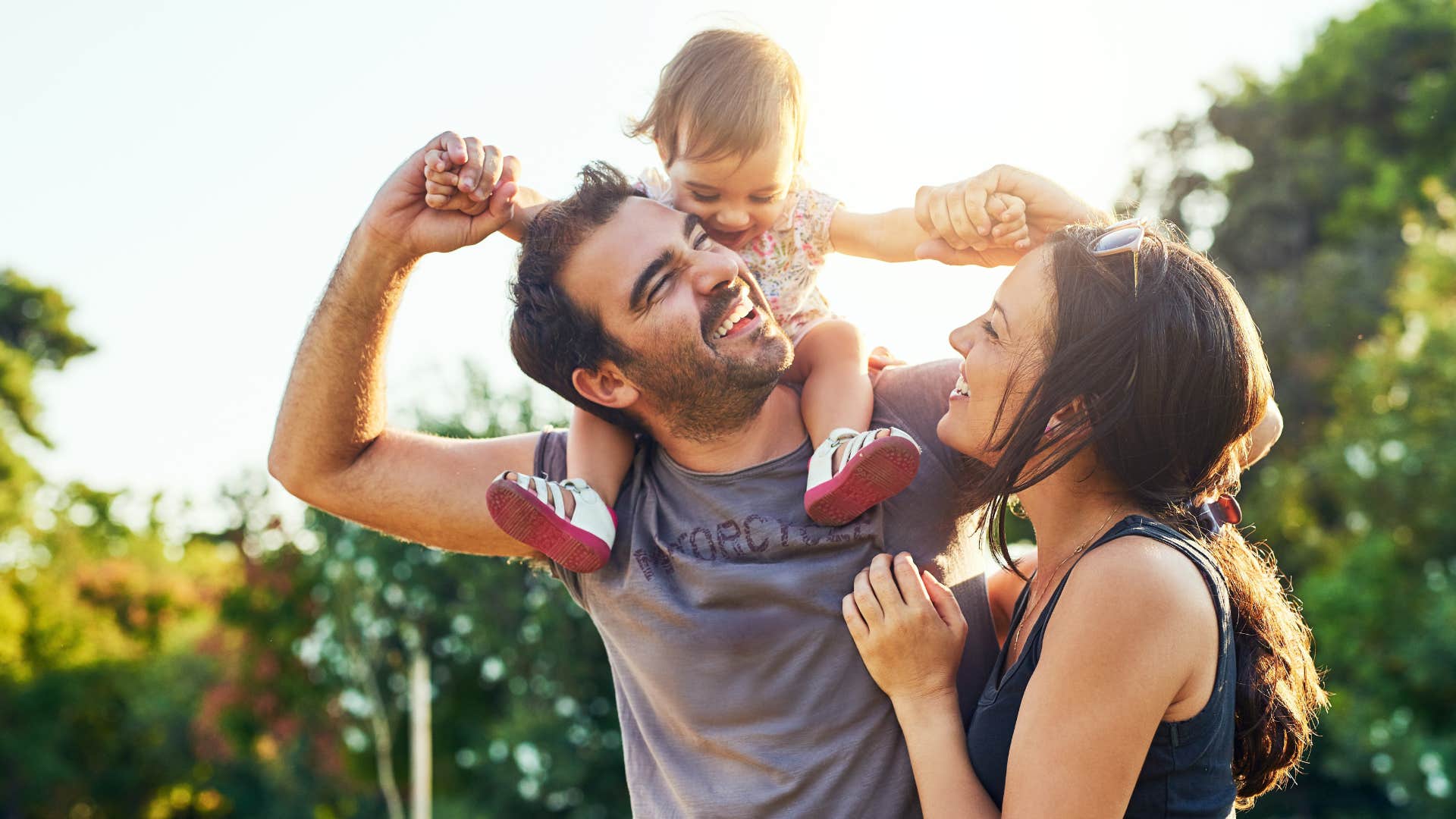 PeopleImages.com - Yuri A | Shutterstock
PeopleImages.com - Yuri A | Shutterstock
Every kid really wants to believe that their parents are superheroes and are capable of absolutely anything. Unfortunately, some children are hit hard with the reality that that just isn’t the case because their parents act far from what you would expect from a superhero. No one is perfect, and parents won’t get everything right all the time, but if they inspire their children and seem unstoppable to them, they’ll seem like superheroes to young minds. If you felt that way, you had a good childhood.
The American Academy of Child and Adolescent Psychiatry noted of the importance of role models in children’s lives. “Children look up to a variety of role models to help shape how they behave in school, relationships or when making difficult decisions,” they noted. “For many children, the most important role models are their parents and caregivers.”
Kids admire and look up to their parents and want to believe the best of them. Some parents truly live up to these expectations and seem like superheroes who can do anything. Their kids are lucky because not everyone can say they grew up with that perspective. Some parents continually let their children down and are far from superheroes. So, if you grew up feeling like your parents were indeed super, you had a better childhood than most.
Mary-Faith Martinez is a writer with a bachelor’s degree in English and Journalism who covers news, psychology, lifestyle, and human interest topics.

